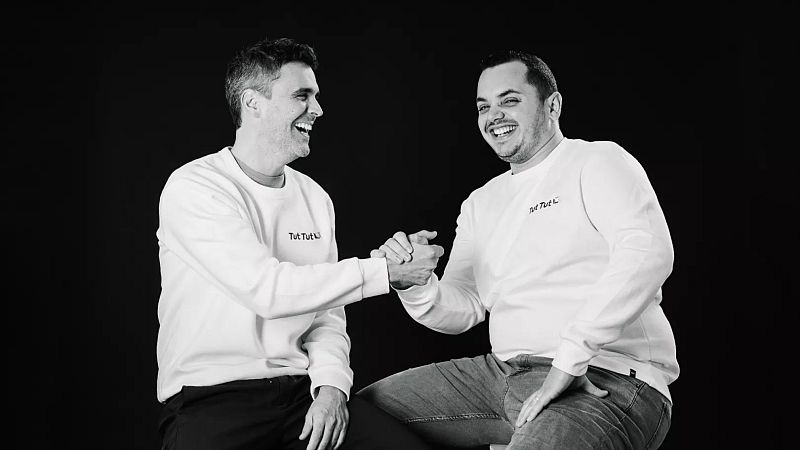Tut Tut: The French start-up making community part of every delivery

French start-up Tut Tut has just registered its milestone one millionth delivery, bringing the efforts of the local community into the world of online ordering.
Similar to popular carpooling apps, the crowdshipping service shares resources across neighbours within a 30km radius. In a nutshell, people can use the platform to pay neighbours to pick up and deliver goods.
Founded in 2021 by Vincent Chabbert, Tut Tut now has 300,000 users across the country. Many often use their everyday commute to deliver packages, earning a small fee in the process.
The firm says its collaborative service offers lower costs and lower emissions, while also bringing a positive social impact by connecting people across communities.
How does it work?
Those who want to become 'co-transporters' can sign up to deliver packages, whether it be groceries, flowers or furniture.
“They finish work, they go and get their shopping for themselves, they can get shopping for someone else as well, and they deliver it to their neighbours,” said the general director of the company, Pierre-Etienne Montenot. “It's like the spirit of BlaBlaCar (French carpooling app), but with the sharpness and the execution of Uber,” he added.
Once a customer needs a delivery in their neighbourhood, co-transporters can accept the order on the app and pick up the package. According to Tut Tut, customers can choose the delivery time, and the AI-supported system selects possible 'co-transporters' according to their availability and location.
The platform focuses on optimising daily journeys, allowing tasks to be done in fewer trips, and therefore reducing emissions. Since it's informal, the service is also open seven days a week.
A new job?
What appears to set this service apart from other services like Uber, however, is that it cannot be turned into a full-time job.
What 'co-transporters' earn is a small supplement, more like a tip.
"So the tip is very low, and it's very important for us because we don't want it to be a job,” explained Montenot.
Co-transporters are limited to three deliveries a day and €250 a month. Each time, they earn between €5 and €15, depending on the distance and the size of the package.
Those signing up to take part in this collaborative service are often pensioners or people close to retirement, who seek to maintain a “social activity” while meeting new people and helping others, Montenot said. He added that “some deliver only when they see that a disabled person needs help”.
In France, the collaborative delivery model appears to be working. Tut Tut's delivery volume doubled between January and August in 2025, reaching one million.
Montenot served as European logistics director at Amazon before joining the company this year, and he advocates for reinventing the relationship between community and e-commerce.
“We can't change the rise of e-commerce, e-commerce is going to grow, but we need to make sure that we reinforce our community because it's so important. Otherwise we're just going to stay at home, order, get the stuff… we need to reinforce our neighbourhood," he said.
Big supermarkets are on board
Tut Tut takes a 25-30% commission fee from each delivery, and this is funded through income from more than 4,000 partner stores, including Carrefour, Auchan, Leroy Merlin, and Intermarché.
According to the director, the retailers agree that they can save on delivery costs if they seal a deal with Tut Tut. Montenot also noted that supermarkets were keen to support low-emission solutions and facilitate a community project.
"If it's, for example, less than five kilometres, we're going to take €8, and from this total, we're going to give €5 to the person who does the delivery," said Montenot.
Expanding into other European countries
Tut Tut is making a profit this year for the first time, according to its forecast. And the company is already eyeing new markets. Tut Tut has plans to expand its crowdshipping service into Spain and Italy throughout the course of 2026.
"We want to be the leader in Europe to the last mile," said the director.
Montenot nonetheless explained that challenges remain, stating that the German market is "not fully ready for this", whereas the UK market could prove to be too mature and digitalised for the community-led approach of Tut Tut.
The investment necessary could be €2-3 million, but the firm told Euronews that it has several offers and can afford to refuse hedge funds.
"Every day we get emails and messages from people who want to invest in our company," said Montenot.
"The power of it is that we are not creating extra emissions, we are building communities, and we are very flexible. I think these three things are what is needed in Europe and in the world to mitigate the power of e-commerce," concluded the director.
Today

